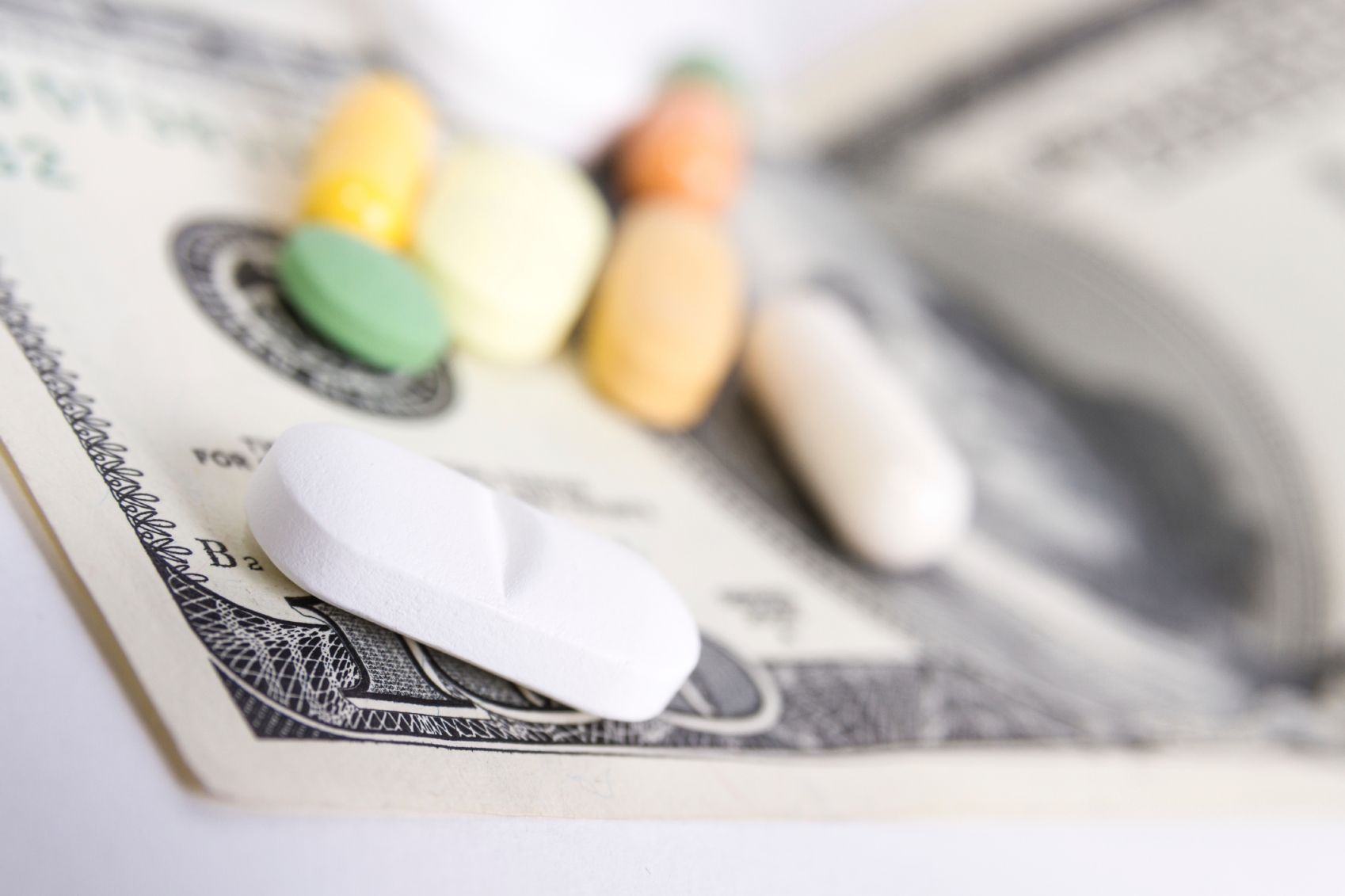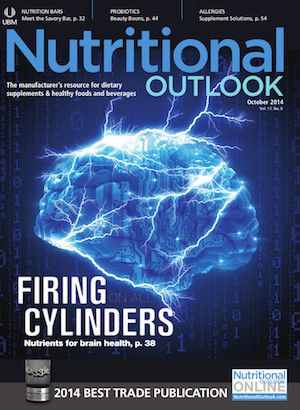U.S. Herbal Supplement Sales Growth Reaches Highest Level Since 1990s
The American Botanical Council reports these estimates in its latest issue of HerbalGram.

Herbal dietary supplement retail sales in the United States topped $6 billion for the first time, according to Nutrition Business Journal estimates reported by the American Botanical Council in its latest issue of HerbalGram. In percentage terms, that’s a 7.9% rise in sales in 2013. This is the biggest growth percentage since the late 1990s, ABC reports. U.S. herbal sales have risen for 10 years straight. The sales growth in 2012 was 5.5%.
The above data comes courtesy of the publication Nutrition Business Journal, which did not include sales of herbal teas, herbs used in natural cosmetics, or herbs used in over-the-counter drugs. Data from the overall HerbalGram report was culled in partnership with Nutrition Business Journal, as well as market researchers SPINS and IRI.
Breaking down the Nutrition Business Journal numbers by market channel, the 2013 sales growth in the natural and health food channel-including Whole Foods Market and GNC-was slightly higher (at 8.8%, or approximately $2 billion) than the growth in the mass-market channel (7.7%, or approximately $1 billion), which includes grocery stores, Wal-Mart, and big-box stores such as Costco. Direct sales (internet, television, and mail order) saw 7.3% growth, or approximately $3 billion.
In the mainstream retail channel, “The sales increase in this channel illustrates continued mainstream acceptance of popular herbs, including (alphabetically) black cohosh, garlic, ginger, ginkgo, ginseng, milk thistle, saw palmetto, St. John’s wort, and others. Notable herbs and plant ingredients gaining popularity in this channel include (alphabetically) coconut oil, fenugreek, gymnema, maca, and tribulus,” states the ABC HerbalGram article.
The top 10 mainstream herbal sellers, with the leader at the top, are:
- Horehound (Marrubium vulgare)
- Yohimbe (Pausinystalia yohimbe)
- Cranberry (Vaccinium macrocarpon)
- Black cohosh (Actaea racemosa)
- Senna (Senna alexandrina)
- Cinnamon (Cinnamomum spp.)
- Flaxseed and/or oil (Linum usitatissimum)
- Echinacea (Echinacea spp.)
- Valerian (Valeriana officinalis)
- Saw palmetto (Serenoa repens)
*View the HerbalGram article for a complete list of the top 40 sellers.
Echinacea (Echinacea spp.), whose sales were up 94.7% in the mainstream channel, saw the largest sales growth percentage in this market. U.S. mainstream echinacea sales are now $28 million. Other ingredients, which did not rank in the top-20-selling herbs, still saw notable gains, including chia seed/oil (Salvia hispanica), which saw a 46.6% sales increase, reaching $5.6 million in sales. Coconut oil, fenugreek (Trigonella foenum-graecum), maca (Lepidium meyenii), and turmeric (Curcuma longa) also saw double- or triple-digit gains. ABC said this is the first time that turmeric ranked among the mainstream top-sellers. Sales did go down for some herbs, including the popular acai (Euterpe oleracea).
While turmeric sales in the mainstream channel are lower, in the natural channel turmeric leads the top-sellers. Sales reached over $21 million in 2013, reflecting 26.2% growth. Grass ingredients (wheat and/or barley) were the second leader in the natural channel, with 17.3% growth at almost $21 million in sales.
The top 10 natural-channel herbal sellers, with the leader at the top, are:
- Turmeric (Curcuma longa)
- Grass (Wheat and/or Barley) (Triticum aestivum or Hordeum vulgare)
- Flaxseed and/or Oil (Linum usitatissimum)
- Aloe vera
- Sprulina Blue Green Algae (Arthrospira spp.)
- Milk Thistle (Silybum marianum)
- Elderberry (Sambucus nigra)
- Echinacea (Echinacea spp.)
- Maca (Lepidium meyenii)
- Saw palmetto (Serenoa repens)
*View the HerbalGram article for a complete list of the top 20 sellers.
“In both the natural and mainstream channels, sales trends indicate strong growth among herbal supplements for energy, immune support, stress regulation (namely adaptogens), and Ayurvedic herbs. The so-called ‘Dr. Oz Effect’ (the phenomenon of increased popularity of herbal dietary supplements featured on the television show of Mehmet Oz, MD), noted in HerbalGram’s 2012 herb market report, appears to be continuing to benefit natural channel sales of herbal dietary supplements,” states the HerbalGram article.
“Consumers continue to express strong demand for a wide variety of herbs, phytomedicines, and other plant-based ingredients for their many health benefits,” said HerbalGram editor-in-chief and ABC founder and executive director Mark Blumenthal, in a press release. “Over the past decade-even during the major economic downturn-retail sales statistics demonstrate the increasing level of interest and confidence that American consumers place in the herbal sector of the dietary supplement market.”
HerbalGram is available at some bookstores and natural food stores and is mailed to members of ABC. The annual HerbalGram herb market report article is posted on the ABC website, accessible here.
Jennifer Grebow
Editor-in-Chief
Nutritional Outlook magazine
jennifer.grebow@ubm.com
Photo © iStockphoto.com/ilyast


.png&w=3840&q=75)

.png&w=3840&q=75)



.png&w=3840&q=75)



.png&w=3840&q=75)
















